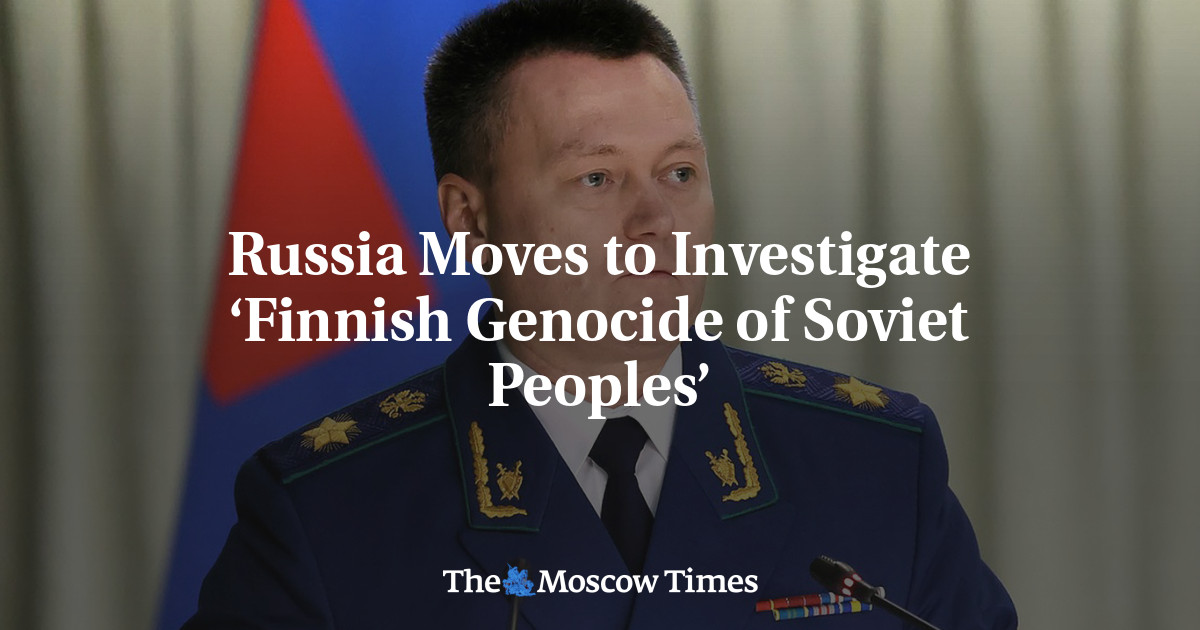
Updated with historical context.
Russian prosecutors announced Thursday that they have asked a court to recognize crimes committed by Nazi Germany and its then-collaborator Finland in the northwestern city of Petrozavodsk as a “genocide.”
The Prosecutor General’s Office said archival documents and witness testimonies indicated that over 8,000 civilians and 18,000 Soviet prisoners of war were killed in more than 100 concentration camps built during the 1941-44 occupation of the Soviet region of Karelia.
“More than 7,000 prisoners died in Petrozavodsk concentration camps during the Finnish occupation alone,” the law enforcement body said in a statement.
Russia estimates damages to Karelia’s economy — from “destroyed towns, villages and all industrial and agricultural enterprises” — at 20 trillion rubles ($231.9 billion).
It was not immediately clear how Moscow would seek compensation from Finland, but a similar World War II-era “genocide” case claims 6.4 trillion rubles in damages from Nazi Germany’s actions in the Moscow region. Both countries are members of the EU, whose relations with the Kremlin have plummeted since the 2022 Russian invasion of Ukraine.
President Vladimir Putin has regularly evoked World War II history in justifying the full-scale invasion, claiming it was needed to “denazify” Ukraine and stop “genocide” against the Russian-speaking population of partially occupied eastern Ukraine. Kyiv and its Western allies have dismissed those arguments.
The Russian authorities have launched a series of investigations into World War II atrocities committed by Nazi invaders across Soviet Russia. This comes amid what observers say is renewed interest — spearheaded by Putin — in the war and how Russia remembers the conflict.
Around 27 million Soviet citizens were estimated to have been killed in World War II, which Russia and some former Soviet republics refer to as the Great Patriotic War. Ukraine estimates it lost at least 8 million as part of the Soviet Union in that war.
The conflict between Soviet Russia and Finland during World War II, known as the Winter War (1939-1940) and the Continuation War (1941-1944), arose from Soviet territorial demands and the subsequent Finnish resistance, leading to significant battles and occupations, particularly in the region of Karelia.